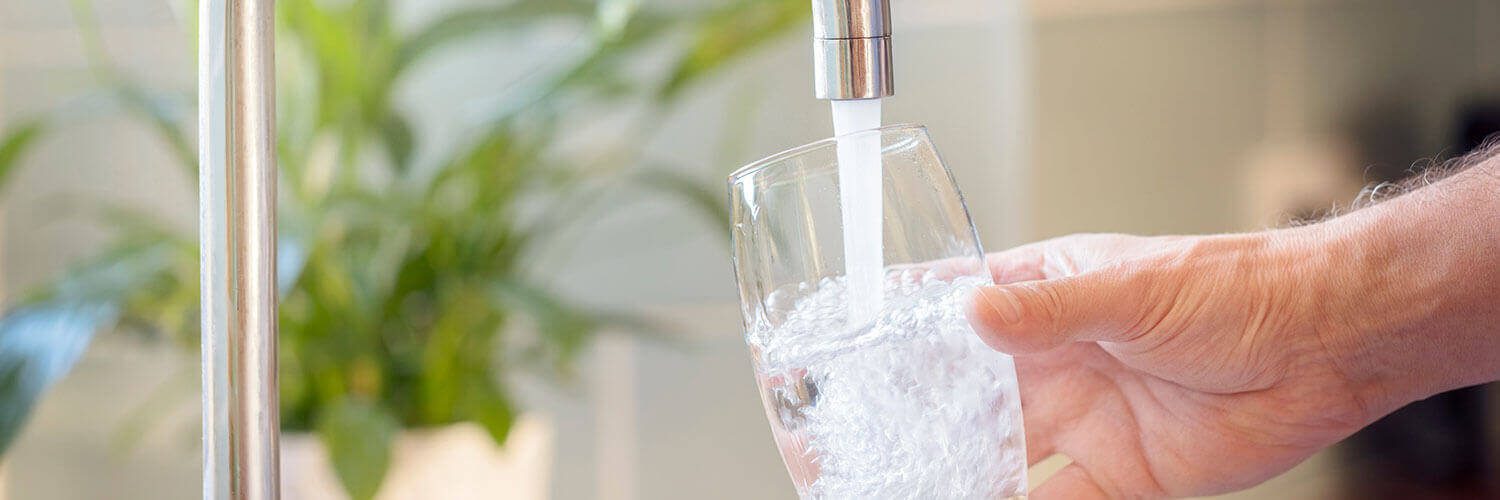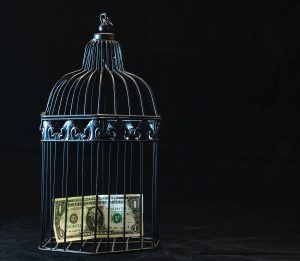Never in recent decades have we had the (im)perfect storm of high inflation, soaring oil, gas and energy prices, increased cost of food and consumer goods, travel and general living and very high taxation. Both employers and employees are getting hit hard from every angle. So you must be vigilant and know exactly where you can protect yourself financially. You may be thinking ‘how can I save money‘, so I’ve put together a ‘How to save money’ guide aimed at helping you put away up to £8000 a year!
Brexit, followed by COVID-19 and lockdowns, then Russia-Ukraine. They say bad luck comes in threes! It’s likely to get worse before it gets better, and the implications could last many years beyond the end of the BIG 3. These events have cost the governments billions, and they only know one way to pay for it; TAX. That’s a rant for another article, but there are things you can practically do, and great ongoing lessons in money management to hold you in good stead for the future.
There are three ways to have more money:
- One is to make more money
- Two is to pay less tax on the money you make
- Three is to save/retain more money.
Again, I will do more episodes and articles on making money and saving tax, for now, know this. When you make more money, you may only retain 20% or less of it, after tax and spending. When you SAVE money, you save 100% of it. So £1 or $1 dollar saved could be worth £5 or $5 earned, in net to YOU terms.
So let’s focus on the saving element in this article. I’m the author of the UKs best-selling book “Money” & host of the podcast “Money”; my specialist subject you could say.
TOP 8 how to save money tips
1. Ditch your daily coffee
The medium skinny cappuccino from Costa is by far my favourite coffee, and it wouldn’t be complete without an extra shot. Yet it costs £3.60 a go, and I have 2 a day. That’s £50.40 week on coffee alone. In February 2022, Costa sneakily raised their prices by 6% as well, just as the cost of living crisis began to kick in. In the past few years Costa also decreased their cup size, meaning you got around 1/3 less. They added another price hike just before lockdown in 2020 when coffee bean prices were at a 13 year low.
My money saving tip: make your own coffee at home. Try and stay away from coffee pods as they cost more per drink than coffee granules. If you purchase your own milk (or powdered creamer which contains a sweetener) and a large jar of coffee you’re going to be quids in, literally. You could easily save £35 a week if not more. That equates to over £1820 a year, without losing your caffeine fix.

2. Pack your own lunch for work
Like so many of us, you may buy your lunch each day whilst at work. Recent research shows that a third of UK workers buy their lunch twice at least twice a week. 14% admit to purchasing more frequently.
Almost 1 in 5 buyers believe that meal deals are cost-effective. But not everything is. For example, a chicken salad with watermelon and carrot sticks will set you back £7.95 from Marks & Spencer. That’s just under £40 for one meal during a 5-day working week.
My money saving tip: prepare your meals at home. Pasta and potatoes can be bought very cheaply and in bulk. The addition of sauces, vegetables and meat will give you 5 delicious hot meals at a fraction of the cost. You could go one step further and pack sandwiches. Highly economical and very tasty! If you halved your daily food budget (which would be extremely easy using the advice above) you’d save over £1000 A YEAR! Suddenly a ham salad sandwich seems a bit more appetising.
3. Switch supermarkets to the next level down
Where and how you shop plays a huge role in how much you spend on your weekly shop. It may sound daft and obvious but it’s amazing how much extra you spend when impulse buying or using upper market stores.
If you currently shop at Waitrose, switch to Sainsbury’s. A regular at Sainsbury’s drop down to Tesco, and so on. If you are penny pinching to the max, Lidl or Aldi is your best bet. In a recent ‘everyday shopping’ test conducted by Which?, Waitrose was shown to be consistently the most expensive supermarket. The same items from Waitrose would set you back £6-10 a month more (up to £120 a year for the same items).
Bulk buy food such as pasta and glass jars of sauce. Switch from the branded named goods to their supermarket equivalent. You can use apps such as ‘Too Good To Go’ which offers unsold produce from numerous restaurants at a fraction of the cost to prevent it from going to waste. Utilising all these methods could save you up to £780 a year.
Another recommendation is doing your shopping online. Using online shopping is a great way to save money as you impulse buy less and tend to concentrate only on the items you need. This saves you money, stops you buying items you don’t want and saving you time as you shop.
Money saving tip: Shop at Aldi or Lidl. Buy in bulk. Switch to supermarket brands and utilise food surplus apps like ‘Too Good To Go’.
4. Utilise Cashback sites like Quidco or Topcashback
A great method for saving money is one that seems to be massively under-utilised, Cashback sites. Businesses such as Quidco or Topcashback work by giving you a slice of the revenue they earn from either advertising or commission.
Quidco is paid to show its customers branded adverts. The money they earn from this is split with its customers in the form of cashback. Topcashback works via a commission service by directing customers using affiliate links on their website. Again, the rewards are paid via cashback.
The savings you can make are incredible. They range from a few pence for your weekly shop to sometimes hundreds of pounds for mobile phone and internet broadband. Not bad for clicking a link. Some cashback sites set withdrawal thresholds, meaning you need to earn so much before you can access your savings. But think of it as just that, a savings account.
One of my Progressive Property staff, Hayley, managed to save just over £8 a week. That’s a saving of over £420 a year.
5. Drink only water
Switching to drinking only water sounds like a stretch but it’s actually quite achievable. After all, up to 60% of an adult human is water. Nearly a fifth of Brits admit to drinking bottled water every day. On average, each person in the UK drinks 50 litres of bottled water a year.
If you buy bottled water, make sure you buy it in bulk to get those large volume discounts. Cutting back on your alcohol consumption is another great way to save money. If you are partial to a few cold ones, pick them up at the new supermarket you now use thanks to step 3 instead of heading down to your local.
If you smoke, try and kick the habit. Switch to e-cigarettes or nicotine replacement products. Eventually, you’d like to drop cigarettes completely as a pack of 20 can run you over £9. If you’re a 1 pack a day person that’s over £3200 a year. If you can make a pack last 2 days and shave a pint or two off your weekly drink you could easily save over £30 a week, or over £1600 a year.
Money saving tip: Switch to drinking tap water only to save even more money. Water from the tap costs on average 0.1p per litre. Compare this to bottled water which averages 65p per litre. Think of the unnecessary waste from all the plastic bottles that end up littered or in the bin (rather than recycling). Invest in a nice reusable bottle and make the switch. Save money and save the planet. Win, win.

6. Nails, facial, spa and waxing at home
This next point sounds a bit unorthodox but it can work for you. Self-pampering can be seen as a luxury, something that isn’t necessary. Yet given the strain everyone has been under over the past couple of years, mental health has taken a huge kickin. Something as simple as a wax or a fresh manicure can be that pick me up you may need.
Money saving tip: Instead of heading to the spa, have a friends night in. A bottle of wine and a steady hand means you can do each other’s nails. You could also have a home spa experience complete with facial treatments etc. This could benefit your bank with a saving of over £1500 a year.
7. Begin lift sharing with friends and work colleagues
Fuel prices are on the increase. The Russian invasion of Ukraine has pushed petrol prices to £1.62 a litre, with diesel costing £1.75 per litre on average. This means the average motorist spends between £1200 and £1700 a year filling up their car. The cost of fuel seems like an inevitable and unavoidable cost, but maybe not?
Money saving tip: Lift sharing could potentially halve your fuel bills. Rotate cars with a colleague when you go to the office or have a pool of families who take turns doing the school run. They all help save those extra pounds. Simply halving the commute to work or the school run could save you over £800 a year.
You could go one step further and begin biking to work or using public transport. Make sure you crunch the numbers with public transport. Check and double check for any discounts your local operator may offer. Also remember to factor in parking charges when comparing transport methods.
8. Switch to spend less on your utilities
According to moneysupermarket, the average household can save £300 a year switching utility suppliers. Comparison websites (like moneysupermarket or uswitch) make it easy to find the best deals and can give you negotiating power with your current providers. Boost Your Broadband tells you what types of broadband are available in your area and gives impartial advice on getting the best deal. If you can, buying a mobile phone outright and paying for a SIM-only deal often works out cheaper than paying back the price of the handset over a long contract. Always shop around. £300 a year is £5.77 a week. Review all your utilities YEARLY as their usual trick is to get you in cheap and then edge the prices back up.

When you add all these regular weekly purchases together, it’s a grand average total saving of £164.17 a week or £8,537 a year, without making huge sacrifices. Small and consistent weekly habit changes compound to large sums of money compounded over time. Unfortunately due to sky rocketing energy prices almost no supplier is taking on new customers (unless forced to). The best advice is to stay put on the OFGEM capped pricing. This state of affairs is likely to last into 2023 and maybe 2024.
How to save money even further
Here are even more ways to save money, build disciplined habits and know the true cost of what you spend. First; money saving behaviours and habits, and them more money saving hacks and tips.
The 7 day rule on any purchases
If you want to buy anything new, give yourself a 7 day rule. Do not buy it immediately, in the moment, rather take 7 days to decide if you still want it. If you don’t, great. If you do, find the cheapest on a comparison website or buy it second hand on sites like ebay, Depop and Vinted.
Save money by taking the 1p savings challenge
This is all about scale over a year. Save one penny on day 1, 2p on day 2, 3p on the third day and so on. After 365 days you would end up with savings of £667.96. Remember the final month of the 1p challenge is the hardest and largest. Over the month you’d put away a total of £108.50.
Anytime you spend money in the form of notes, and it is broken into coins, save the coins. Never spend the coins. Then bank the coins each year. You could save £35 a week or £1,830 a year.

Use round-up banking
Round up banking is available through the vast majority of high street banks. It is a feature that rounds your purchase up to the nearest pound and adds that money to a savings account. For instance, if you spend £34.56 on your weekly shop and you pay with your debit card, your bank rounds this up to £35. The original amount is paid to the retailer and the additional 44p is added to a savings account.
Round up saving is very easy to set up and can be done via your banking app. This method of saving is very good, particularly when used in conjunction with food shopping. You can easily save £40 a year from your weekly shop alone. Couple that with other debit card expenditures and you could save £100+ a year.

The ‘no spend’ weekend
Set yourself a ‘no spend weekend’ – once every one to two months. Do activities like going on walks, movie night, board games, free museums. And if you use up any leftover food from the week as well, this can all really make your salary go further every one to two months. Not only will this save £100 or more, it will help you let go of your reliance to spend money to enjoy life, and teach you to get the most out of life without the need to spend.
About to spend? Save the same sum first
Next time you want to buy something you don’t need, instead of making the purchase, put the money into your savings account. For example, stop yourself buying the latest headphones you don’t need, and transfer the same sum from your current account into your savings account. This way, you’ll save extra money. Get in the habit of not spending on things you don’t need, and you will condition your emotions to go from instant to delayed gratification. You will literally TRAIN your brain to save rather than spend.
Know the TRUE cost of what you’re buying
There’s a quote, that people know the price of everything but the cost of nothing. The true cost of something you buy, includes: “Opportunity cost” and “Depreciation cost”. Take a new pair of headphones, let’s say £150. The Opportunity cost is this amount of capital that could have been elsewhere invested, PLUS the interest it could have accrued. 5% interest on £150 might not sound a lot, at £7.50 a year, but even in simple, non-compounded terms, that is £225 over 30 years. The Depreciation cost, is the amount the capital value goes down over time. A new pair of £150 headphones is likely to be no more than £50 in 2-3 years. So the total cost is £100 depreciation and £7.50 a year in interest.
Across multiple purchases in your year, this can amass to many £100s or £1,000s.
Delay holidays (sorry, not sorry)
This one is controversial because a lot of people place high value on holidays. The average holiday is around £5,000 for a week. That’s only going to go UP. Twice a year, that is £10,500. People often put much of this spending on a credit card, and then get hit with 20% or more in interest payments that can take years to pay off. No matter how much you de-stressed in that week, you can feel the financial pinch for years. According to The Money Charity it could take up to 26 years to pay off the average credit card!
Consider having a year where you don’t take holidays, and save the £10,500. With opportunity cost saving (the full £10,500) and 5% interest a year, in simple terms, of £525 a year, it’s a huge amount of money to many people.
You can get creative about taking a week off at home and doing fun things. You can save money for holidays next year or the year after. With travel and food prices soaring, you could ride it out until they drop back down again.
Pay off your highest debts first and most
Let’s say you’ve got £1,000 on a card at 18% (£180/yr interest bill) and, at the same time, £1,000 in savings earning 1% (giving you £10/yr). If you could pay off the card balance with your savings, you’d be £170 better off a year. You need to keep some savings, but you will save more if you pay off debt.
Instead of paying off all your credit cards equally. Pay off the highest debt ones first and with MOST of your repayment budget, and smaller or minimum payments on the lowest interest.
Let’s say you have £1,000 with 15% interest on one credit card, and £1,000 with 25% interest on another, the difference is £100 a year in simple terms. Pay a larger amount off the 25% interest, and you will pay less interest overall.
WARNING: the AVERAGE interest rate on a credit card is 19.24%. So, you’re FAR better to ALWAYS pay off your credit card balance.
NEVER spend emotionally
A fundamental law of money is that volatile or extreme emotions tend to erode wealth. So endeavour to never spend when emotional. When you are high, you will make flippant decisions around money and be too careless. When you are low you can go into hoarder mode and be too careful. You can also use money to alleviate your pain, which can start to form addictions. When addicted to something, to achieve a high or evade a low, you will spend money you often can’t afford, because that’s the easier way to get rid of the (temporary) pain. So money mastery is being self aware of your volatile emotions, know when you are in extreme highs or lows, and then take a step back, never spend when triggered, and ONLY make important spending or budget decisions when emotionally balanced, neutral and in control of your emotions.
Self insurance
Instead of paying over to insurance providers, you could consider ‘self insuring’. Certain insurances are legally required and too big to self insure, like car or buildings insurance. Other things you may want to insure, contents, contents when travelling, pet, phone, key item, etc, you could consider working out the premium, and instead of paying it over to an insurance provider, place it in a savings account or liquid cash asset. Insurance providers make money, and over time you should save the money they make. Beware the risks in case you need an expensive and early claim.
How to save money on the next level
And if you want to go to the next level or micro-detail, here are some hardcore hacks for saving even more money. One small word of caution, be careful not to get into diminishing law of returns, where you spend hours to save a few pounds, which has ‘Opportunity cost’ from free time or earning potential.
Vouchers
My wife got 2 for 1 vouchers for Alton Towers on a Coco Pops box. You can use vouchercodes.co.uk to get vouchers and discounts. If you buy as much of your non-essentials and non-perishables in sales, at discounts, and in bulk when they are on sale, you can save fair sums over the year.
Strangely-shaped veg island ‘seconds’
Look out for oddly-shaped veg in boxes for discounts (often quite a few pounds cheaper) because many customers don’t like the way it looks. But if you don’t mind your vegetables coming in strange shapes, it’s an easy saving. You can buy food at the end of the day nearing it’s sell by date, and also ‘seconds’ of clothes, that have minor imperfections.
Avoid monthly insurance & other ‘monthly subscriptions’
Your insurance premiums might look more affordable in any list of insurance quotes, but there’s often a sting – many firms charge high interest if you pay monthly. This can put an extra 10% or more on to your premiums – that’s £50 more, for example, for a £500 car cover policy. Pay upfront if you can.
You probably have a few direct debit monthly outgoings that you’ve had for months or years, maybe some that you don’t need. Every quarter do a purge and clear out and cancel unwanted or unnecessary monthly direct debits and subscriptions.
Paying your mortgage down
Overpay a bit each month, say £50, and you could chop down the length of your mortgage term and save thousands in interest. Imagine you owe £100,000 at 3%. It’d be roughly £470 a month over 25 years. But pay an extra £50 a month and you could save more than £6,000 interest – and pay it off three years early. Always check for early-repayment charges, though. Also consider that if your mortgage interest is low, you could get a better return on your money by investing it.
Change banks and get free cash
You can switch your bank account and get paid in cash to do so. Some banks are currently offering a £150 bonus for new customers who switch their current account. Make it a yearly diary entry to check all your subscriptions, insurances and utilities, and work out if switching can save you money. Beware diminishing law of returns if these things start to take too long to do.
Transfer debt to a 0% deal
If you have a large amount of debt, perhaps on an overdraft or credit card, it is likely that you are paying high levels of interest. You could consider switching it all to a credit card with a 0% balance-transfer deal. Check moneysupermarket for the latest and best deals. Be mindful that you can have one off fees to transfer balances, and they can end up being as much as the interest you save.
How to save money Hardcore
Want to go even more hardcore on your saving? Then buckle up and brace yourself for these full on vagabond hacks.
Make presents rather than buy them
Implement a no-buying-presents rule for a full year with your family members and friends. You could agree between the people you buy for not to buy for each other, or you could do a small secret santa. You could get creative and make presents or give experiences. My sister gives me ‘babysitting’ vouchers, where she will give me babysitting credits so I can actually go out, and these are worth more than Gold, Frankincense and Myrrh to me!
Buy lost and stolen goods at police auctions, ‘sample sales’ & vintage or charity shops
Police forces end up with plenty of lost and stolen items they can’t use, so sell them at auction. Items on offer vary wildly – bikes, razors, toys, denture cream, candles. Type the words ‘police stolen goods auction’ into your web browser and look for an auction near you. You’ll usually have to collect the goods in person, so always check the location.
For the brands and items you buy, check for ‘sample sales’ to see if they are selling off stock cheap. A surge in donations to charity shops during the pandemic has meant there have been plenty of bargains to be had. For high-end bargains, charity shops in Chelsea in London, Alderley Edge in Cheshire, Bath, Oxford and St Andrews in Scotland are the places to go. Charities also appear on designer shopping app Depop and you can also shop on Vinted.
Borrow rather than buy
If you don’t manage to find what you need in a charity shop, maybe you can borrow it. Family members who are on board to support you while you save may be able to help here. Alternatively, Badlee is an app that lets you borrow items from friends and neighbours, while the Library of Things in south London lets you borrow useful products like drills, gazebos and carpet cleaners at affordable prices
The ‘buy more to pay less’ delivery trick
If you’re buying something online, always check what the free delivery threshold is – if what you’re buying is just under, then add something small to get you over the threshold, and you pay less overall on delivery. Plus with Amazon there’s actually a tool to help you find cheap items. Be mindful not to buy extra things you don’t need, but what is great about this is you can do less shopping, less frequently, but batch it all together so you save valuable time as well as money.
Final thoughts on how to save money
- Cashback or air miles on credit cards, as long as you don’t spend more and you pay off your credit card each month
- Home workouts rather than paying for a gym
- Walking rather than taking Ubers and taxis
- Taking your own car seats on holiday rather than hiring them
- Food prep at home rather than meals out
- Handing down clothes, bags and sports equipment
- Buying once, using forever. Items you use regularly like coats, handbags, watches, buy ONCE in your lifetime
- Car servicing & MOT locally and independently rather than main dealer service
I hope you found this valuable and practical. I am also the best-selling Author of “Money” (& 17 other books) and the host of the “Money” podcast.
Have a question or wish to find out more? Then simply get in touch with me today!


